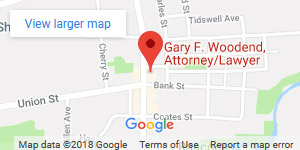Adding your child’s name to your Deed may not be such a great idea.
Putting your child’s name on the deed to your home is often used as a simple and inexpensive estate planning technique to ensure your home goes to your son or daughter when you pass. But as you will read below, putting your child on your deed can have problems. You should consult an experienced estate planning attorney before you add a child’s name to your deed.
1. Title Problems. Adding a child’s name to a deed gives that child a real ownership interest in your home. As a result, you will not be able to sell the home or refinance your mortgage without getting your child’s consent by having them sign the appropriate legal documents.
2. Creditor Claims. If your son or daughter is on the deed to your home, then their share of your home may be subject to your child’s creditor claims. This includes claims from credit card companies, lending companies, and liability claims stemming from an unexpected accident. Worse yet, medical bills from an unexpected illness. It is very possible that, someday and probably through no fault of their own, will run into financial problems, putting ownership of your home at risk.
3. Capital Gains Problems & Step Up in Basis. This is a little complicated but also very important. Simply put, a capital gain is the profit you make on selling your home. In its simplest terms, your profit would be the difference between your basis (usually the original purchase price) and the amount you get when you sell it (selling price). This profit is taxable income. The IRS does allow certain exemptions for your primary residence, but that would be the subject of a future article.
This is the important part: One of the great loop holes in the IRS Code is that when you die, the value of your property steps up in basis to its fair market value as of the date of death. In other words, there is no tax on the profit! So, if you paid $100,000 for your home, and it is worth $400,000 when you die, your heirs get the property with a basis of $400,000, and all that profit is forgiven. ? Not so, however, if you add your child to the deed to your home while you are living, because you are making a gift of your property. When you gift property, the recipient takes the property at your original basis. In our example, $100,000. Thus, when your child sells your home after you die for its fair market value (e.g., $400,000), your child will pay taxes on the $300,000 capital gain, whereas they would have no income taxes to pay if he or she inherited the property at your death.
4. Bankruptcy Claims. Nearly one million people file for bankruptcy each year. If your child files bankruptcy, the bankruptcy court may be entitled his or her share of your home. Remember, by placing their name on your home you are gifting them a share of the property. As a result, your child’s share of your home may be sold to satisfy his or her debts.
5. Special Tax Benefits. By adding your child to your deed, you may no longer qualify for homestead rebates, or reduced property taxes awarded because of age, income or disability.




